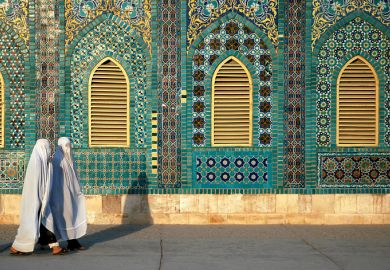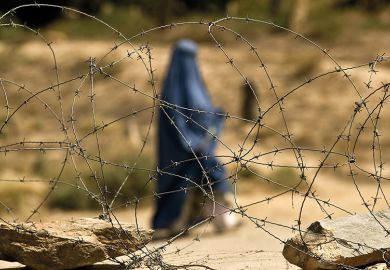Nineteen female Afghan medical students have arrived in Scotland to complete their studies after they were kicked off their courses by the Taliban.
The Scottish government amended student funding legislation to allow them to be treated as home students, meaning that they will receive free tuition and be eligible for cost-of-living support.
They will now enrol at the universities of Aberdeen, Dundee, Glasgow and St Andrews to continue their medical degrees.
Figures published last week by the United Nations Educational, Scientific and Cultural Organization (Unesco) indicated that university enrolments in Afghanistan had fallen by more than half following the Taliban’s December 2022 decision to ban women from enrolling in higher education.
Researchers have expressed particular concern about the impact of this decision on medical training in the country, which is already facing a severe humanitarian crisis, including widespread food insecurity and a struggling medical system.
The 19 women coming to Scotland were supported by a charity, the Linda Norgrove Foundation, which secured agreements with the four universities to enrol them.
They were met at Edinburgh Airport by Jenny Gilruth, Scotland’s education secretary, who said gender “should not be a barrier to accessing education”.
“Scotland has a proud history of welcoming people from across the world who need support,” she said.
“I wish each and every one of these inspiring women the warmest of welcomes to Scotland and look forward to the positive contribution they will make to our country.”
Unesco figures indicate that the number of students enrolled in Afghan universities has fallen from 430,000 to 200,000. Other students have been forced to switch to online study.
Resource collection: Gender equality in higher education - how to overcome key challenges
Speaking to Times Higher Education as the data was released, Ayesha Ahmad, reader in global health humanities at City St George’s, University of London, noted that women in Afghanistan were now allowed to see male physicians only in emergency situations
“Banning women from studying to become doctors or health professionals has…made accessing healthcare much more difficult,” Dr Ahmad said.
The Holyrood government’s move echoes its decision to extend home fee status to Ukrainian refugees, which was announced in April 2022.
Register to continue
Why register?
- Registration is free and only takes a moment
- Once registered, you can read 3 articles a month
- Sign up for our newsletter
Subscribe
Or subscribe for unlimited access to:
- Unlimited access to news, views, insights & reviews
- Digital editions
- Digital access to THE’s university and college rankings analysis
Already registered or a current subscriber?








